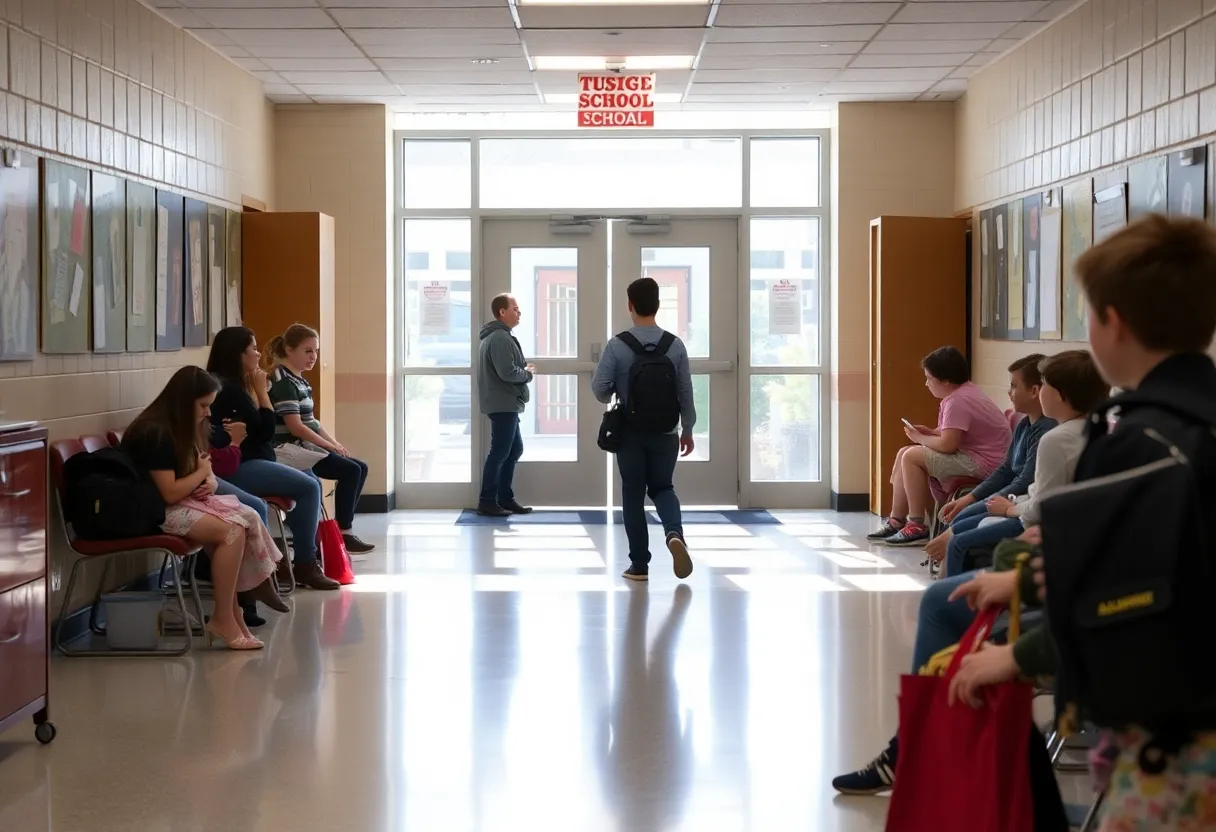News Summary
Recent executive orders from President Donald Trump could severely impact medical research funding in North Texas, potentially jeopardizing $71.5 million across several institutions. The directive proposes capping grant funding for indirect costs, essential for research operations. Legal challenges are underway with twenty-two states contesting the order. Key institutions like the University of Texas at Dallas and UT Southwestern may face substantial losses, threatening ongoing research initiatives and advancements in healthcare. The outcome of these legal disputes will determine the future of medical exploration in the region.
Dallas, Texas – North Texas Medical Research Faces Potential Funding Cuts Due to Trump Executive Order
On March 15, President Donald Trump issued an executive order that mandates cuts to medical research funding in North Texas. This order has raised significant concerns among research institutions in the region, as it could jeopardize a total of $71.5 million in funding spanning across six prominent North Texas institutions.
As part of the proposed changes, the order proposes to cap the amount of grant funding available for indirect costs provided by the National Institutes of Health (NIH). Indirect costs include essential overhead expenses such as utility bills and hazardous waste disposal, which are crucial for research operations. In fiscal year 2024 alone, approximately $9 billion of the $32 billion allocated for NIH grants was designated for these indirect costs. The new proposal intends to restrict indirect cost funding to just 15% of grant amounts, which could have drastic implications for ongoing research projects across the region.
A federal judge has temporarily paused the enforcement of Trump’s executive order amid ongoing legal challenges. Currently, twenty-two states have filed lawsuits against this order, seeking to contest its validity and the methodology behind the proposed funding reductions. Hearings addressing these lawsuits are scheduled for February 21, where the legal arguments for and against the order will be presented in court.
Impact on Local Institutions
The University of Texas at Dallas (UTD) is one of the institutions poised to be heavily affected by this executive order. UTD received 68 NIH grants totaling $26 million in fiscal year 2024. If Trump’s proposed cuts are enacted, estimates suggest UTD could lose approximately $5 million in funding, which could have considerable repercussions on their research capabilities. Recently, UTD’s Center for Advanced Pain Studies acquired a $3.1 million grant to investigate pain triggers in diabetic patients, emphasizing the type of critical research that could be hindered by these funding cuts.
UT Southwestern Medical Center is at risk of losing an estimated $63 million across around 600 grants, collectively worth $289 million. Dr. Daniel Podolsky, who leads UT Southwestern, anticipates that the cumulative financial losses may approach $100 million, raising concerns regarding the potential disruption to their research infrastructure, which plays an important role in various medical advancements.
The University of Texas at Arlington could face a reduction of at least $1 million from its already allocated $9 million in grants, which would limit their scientific research capabilities. Similarly, the University of North Texas may see a diminishment of $362,000 from its $3 million grant distribution. Southern Methodist University (SMU) is expected to incur a cut of approximately $183,000, also stemming from its total of $3 million in grants.
Future of Research in North Texas
In light of these potential funding changes, both UTD and SMU are actively assessing how the policy would affect their respective research initiatives. The stalled enforcement of Trump’s order brings some relief, albeit temporary, as the affected institutions brace for the legal outcomes expected in February. The overarching concern remains that diminished funding for medical research could stifle innovation and hinder advancements in healthcare that benefit not only North Texas but the wider public as well.
The ramifications of the executive order could significantly reshape the funding landscape for medical research in North Texas, prompting institutions to explore alternative funding sources or potential budget reallocations should the proposed cuts come into effect.
Deeper Dive: News & Info About This Topic
HERE Resources
Leadership Shifts at Local Schools Impact Future of Education
North Texas Universities Focus on Workforce Development
Texas Legislative Session Nears Conclusion with Key Bills Pending
New Pediatric Cancer Program in Houston
Additional Resources
- Dallas Observer: Dallas County Spent $400M on STIs Post-COVID
- Wikipedia: Sexually Transmitted Infection
- Dallas Observer: Koe Wetzel – Stronger Together Kerr County Relief
- Google Search: Koe Wetzel Relief Fund
- Dallas Observer: Texas May Provide Help as 988 Suicide Line Faces Cuts
- Google Scholar: 988 Suicide Hotline
- Dallas Observer: KERA Set to Lose $27 Million from Federal NPR Funding Slash
- Encyclopedia Britannica: National Public Radio
- Dallas Observer: US Rep Requests Millions to Help Local Groups Including DART
- Google News: DART Funding

Author: STAFF HERE DALLAS WRITER
The DALLAS STAFF WRITER represents the experienced team at HEREDallas.com, your go-to source for actionable local news and information in Dallas, Dallas County, and beyond. Specializing in "news you can use," we cover essential topics like product reviews for personal and business needs, local business directories, politics, real estate trends, neighborhood insights, and state news affecting the area—with deep expertise drawn from years of dedicated reporting and strong community input, including local press releases and business updates. We deliver top reporting on high-value events such as the State Fair of Texas, Deep Ellum Arts Festival, and Dallas International Film Festival. Our coverage extends to key organizations like the Dallas Regional Chamber and United Way of Metropolitan Dallas, plus leading businesses in telecommunications, aviation, and semiconductors that power the local economy such as AT&T, Southwest Airlines, and Texas Instruments. As part of the broader HERE network, including HEREAustinTX.com, HERECollegeStation.com, HEREHouston.com, and HERESanAntonio.com, we provide comprehensive, credible insights into Texas's dynamic landscape.





